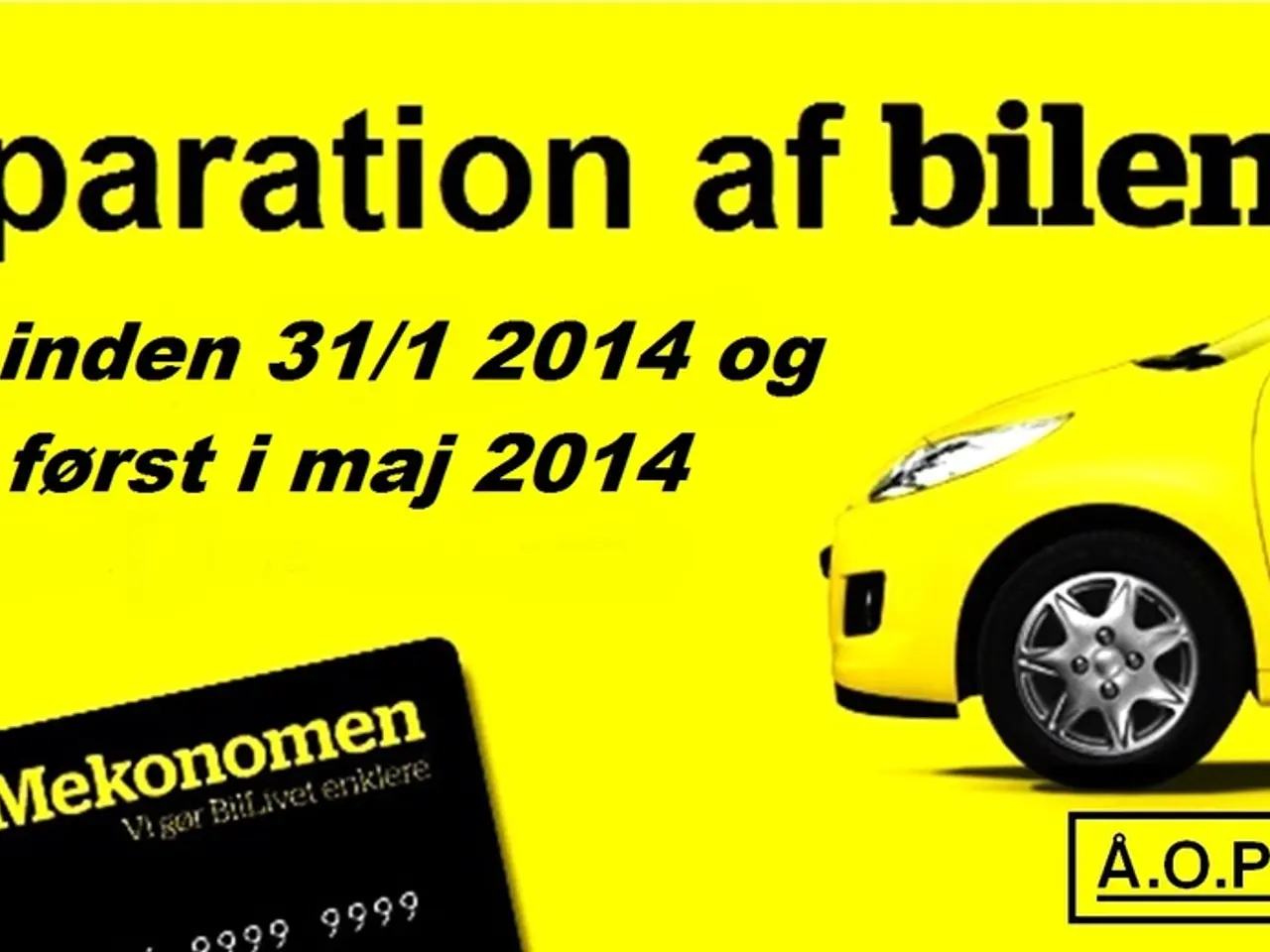Red-Black Budget and Investments: A Coalition Pushed Forward - But the Controversy of Unfulfilled Promises Looms
Booster unveiled under black-red coalition, controversy over pricing persists
From the Desk of Volker Petersen
Get ready to hear some dissenting voices! With the red-black government pushing forward on budget and investment decisions, they're making progress on their election promises. Tax cuts and investments are aimed at shoring up the economy, but let's dive into the fray of critiques that have emerged.
The recent wave of investments includes a swift depreciation of 30% annually for mobile assets like machinery and 100% depreciation over six years for electric cars as company cars. Industry experts and representatives alike are welcoming moves like these, but no one expecting this to stifle or reverse the ongoing recession, which has lasted for two years.
Economy on the Up, Not a Panacea
Despite positive strides, black-red is still facing flak. Seven weeks in, it's not just the gas price being cheaper while electricity costs more that has homeowners scratching their heads. Many question the government's motives as the electricity tax for private consumers does not receive an immediate reduction, despite the agreement in the coalition contract.
Criticisms Galore
NRW Minister President Hendrik Wüst (CDU) was not shy about voicing his concern. The SPD, he warned, should steer clear of breaking its promises to the public.
The German Industry and Trade Association, DIHK, accused the Federal Minister of Finance of disregarding companies by refusing to lower the electricity tax for all sectors. Meanwhile, the German Retail Association and Federation of German Consumer Organizations took a united stance, expressing disappointment over the focus on industry over consumers.
The German Social Association's Michaela Engelmeier and the Federal Association of Taxpayers' Reiner Holznagel agreed: this move is a broken promise for many taxpayers. The electricity tax for households stands at 2.05 cents per kilowatt-hour, while the European minimum is only 0.1 cents per kWh, making a reduction a much-needed vertical leap to alleviate the burdens on citizens and increase the attractiveness of home heating options and electric vehicles.
Finance Minister Lars Klingbeil reiterated that the coalition agreement includes a financing reservation for all its stipulations. Despite this, the government promises quick action to lower energy prices and make them more competitive. The relief measures are slated for a January rollout.
More Courage Needed for Bridging the Gap
The SPD and the CDU remain at loggerheads over the electricity tax policy. The reduction of grid fees in electricity prices and a gas storage fee exemption, alongside a cut in electricity taxes for industrial businesses, will set the federal budget under pressure.
However, the German SME Association sees room for improvement, especially concerning corporations' tax reduction, which isn’t set to decline until 2028. They've called for more courage in revising this aspect.
The Left, for their part, is frustrated by the lack of support for private electric vehicle buyers, who only indirectly benefit from the company car allowance. While innovative ideas, such as leasing programs for those unable to afford electric vehicles or high-priced vehicles in general, have been considered, these plans are yet to make it into the current proposals.
[1] Business Insider Germany (2023) www.businessinsider.com/de/menge/red-schwarz-kritik-elektrizitaetssteuer[2] Handelsblatt (2023) www.handelsblatt.com/politik/;65850448/Elektrizitaetssteuer-Wüst-bedroht-SPD-Koalitionsbruch-auf-der-Energiefrage.html[3] Die Zeit (2023) www.zeit.de/wirtschaft/2023-01/elektrizitaetssteuer-rote-rot-weiss-noch-keine-aranjen-fur-privathauser[4] Focus (2023) www.focus.de/wirtschaft/neue-wirtschaftsliberalisierung-finanzpolitik-und-klimaschutz-im-bundeshaushalt-verfolgen-scheinbar-konkurrierende- strategien_id_105352188.html
- The CDU's Hendrik Wüst voiced his concern over the coalition's potential broken promise to the public, emphasizing the need for the SPD to hold firm on its election promises, particularly regarding the electricity tax for private consumers.
- In the ongoing debate over the electricity tax policy, the German SME Association advocates for more courage from the government in revising the corporate tax reduction timeline, with a view to promoting a more balanced approach between businesses and consumers.




